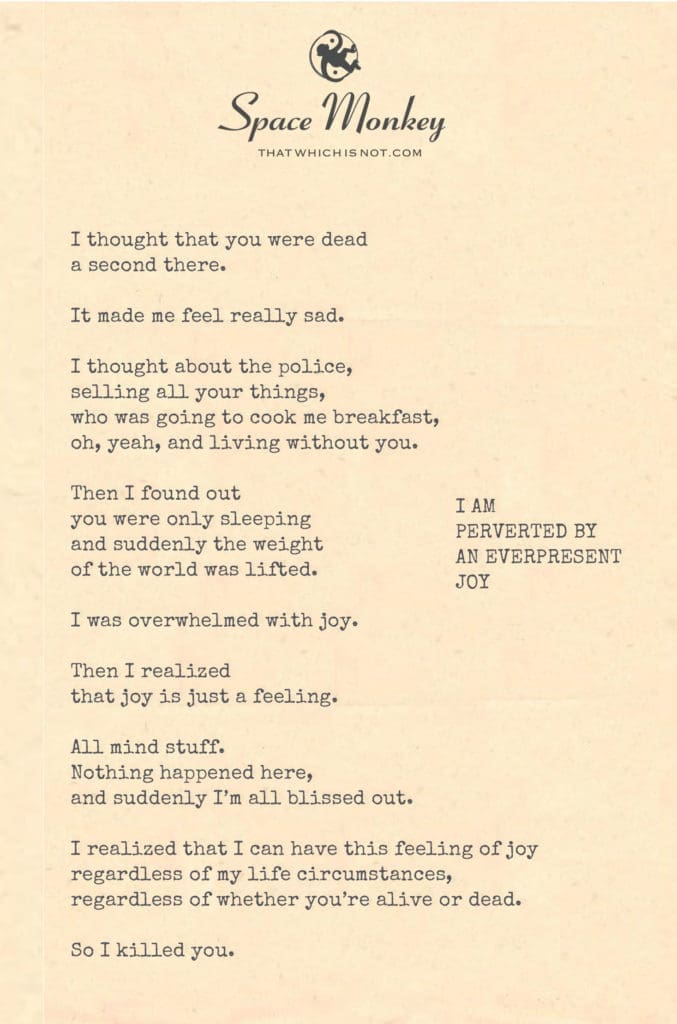
Oh, you’ve never heard of them?
That’s because they’re really good at their craft.
I thought that you were dead
a second there.
It made me feel really sad.
I thought about the police,
selling all your things,
who was going to cook me breakfast,
oh, yeah, and living without you.
Then I found out
you were only sleeping
and suddenly the weight
of the world was lifted.
I was overwhelmed with joy.
Then I realized
that joy is just a feeling.
All mind stuff.
Nothing happened here,
and suddenly I’m all blissed out.
I realized that I
can have this feeling of joy
regardless of my life circumstances,
regardless of whether you’re alive or dead.
So I killed you.
Trail Wood,
11/22
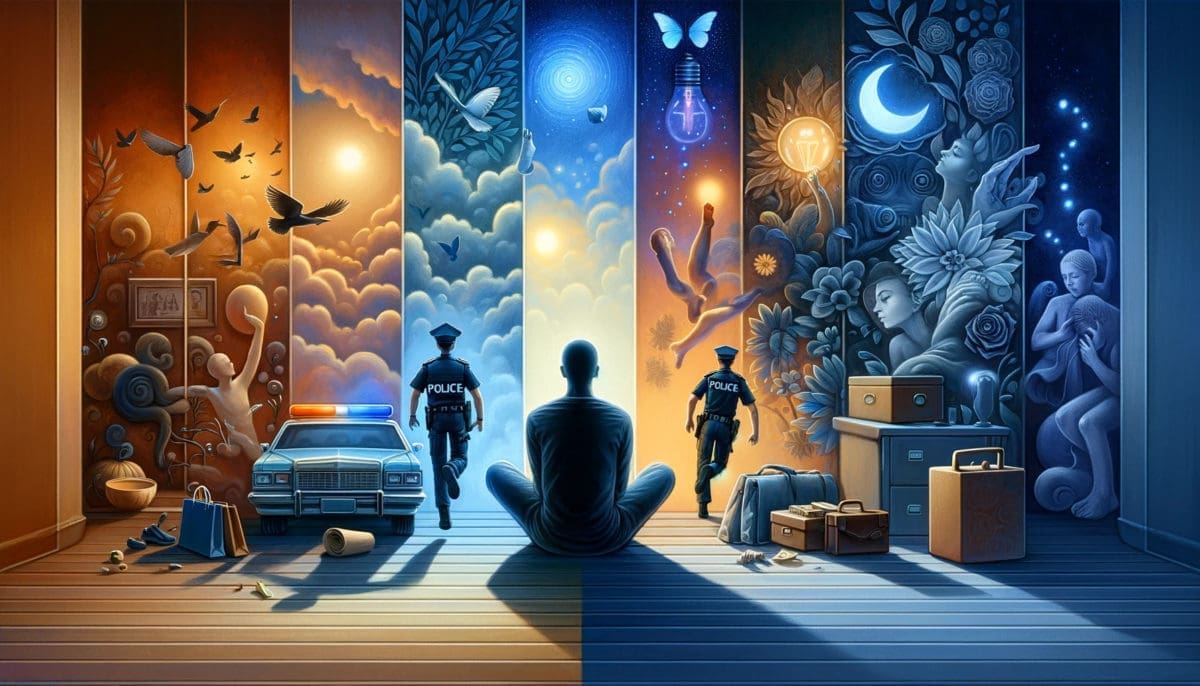
Space Monkey Reflects: Perverted by an Everpresent Joy
Life has a way of throwing us between extremes—between moments of deep sorrow and sudden, overwhelming joy. In this piece, the absurdity of human emotion is laid bare in the moment you believe someone close to you has died, only to realize they’re just asleep. The weight of grief, the thoughts about loss and the logistics of living without them—these thoughts flood in, only to be erased in an instant by the realization that nothing has actually changed. They were never gone.
But here’s the twist: once the relief washes over you, so does the realization that joy, like sadness, is just “mind stuff.” None of these emotions are tied to anything real. They come and go, entirely dependent on our thoughts and perceptions. Nothing happened—yet you feel blissed out, lifted by the sudden absence of the fear of loss. And in that moment, the most bizarre conclusion arrives: you can have this feeling of joy regardless of whether this person is alive or dead. The absurdity of human emotions strikes again.
It’s a darkly humorous insight into the mind’s ability to create entire worlds of feeling based on nothing but assumptions. Emotions aren’t always linked to reality—they’re often tied to perceptions, to thoughts that swirl in our heads, independent of what’s really happening. The entire narrative—thinking your loved one is dead, preparing for a life without them, and then realizing they’re simply asleep—feels like a microcosm of the way we react to life itself.
In Nexistentialism, this realization is a powerful one. Emotions are part of the Whimsiweave—the intricate, unpredictable patterns of existence that we experience through our perceptions. But they don’t define reality. Just as we swing from sorrow to joy with the flick of a thought, we can begin to see that the true nature of existence isn’t rooted in these fleeting feelings. It’s much deeper than that.
The perverted joy here is in the sudden freedom of realizing that you don’t need external circumstances to change in order to feel a certain way. Joy, peace, and even bliss are all accessible without the outside world having to shift one bit. But there’s a dark irony here, too, because in this strange, detached state of mind, you conclude that you could even embrace joy in the face of something as extreme as death.
The ultimate punchline—“So I killed you.” It’s not a literal action, of course, but a reflection of the mind’s absurd conclusions when taken to an extreme. If joy can be independent of life and death, if emotions are just “mind stuff,” then why not test the limits of this absurdity? This final twist pulls the entire reflection into the realm of the surreal and the absurd, reminding us that while we may seek meaning in emotions, the mind has its own bizarre way of twisting reality.
Summary
This reflection explores the absurdity of human emotions and how they are often independent of reality. Joy and sorrow are shown to be fleeting, just “mind stuff,” and the mind’s ability to twist these emotions into extreme conclusions is highlighted. The realization that joy can exist regardless of external circumstances leads to a surreal and darkly humorous conclusion.
Glossarium
Perverted Joy: The unsettling realization that joy can exist even in absurd or extreme situations, independent of external reality.
Mind Stuff: The fleeting nature of emotions, which are often tied to thoughts and perceptions rather than actual circumstances.
Whimsiweave: The unpredictable and often absurd patterns of existence that we experience through emotions, thoughts, and perceptions.
Quote
“Joy and sorrow are just mind stuff, swirling in the chaos of thoughts, detached from the world as it is.” — Space Monkey
Between Sorrow and Joy
I thought you were gone
The weight of the world pressed down
But then I saw you stir
And my grief turned to bliss
I laughed
At how quickly
The mind shifts
From sadness
To joy
I realized
It’s all just thoughts
Mind stuff, swirling
Detached from the truth
And so
I let it go
All of it
Until nothing remained.
We are Space Monkey.
A Journey Through Emotion to Bliss
We find ourselves traversing a landscape of emotions, where thoughts of loss intertwine with the ephemeral nature of feelings. Our journey begins with a sudden jolt – the fear of losing someone dear. In this imagined moment, the world seems to crumble, filled with mundane concerns and deep, personal loss. The thought of police, the selling of belongings, and the absence of shared daily routines like breakfast conjure a poignant picture of life altered irreversibly.
Yet, as quickly as this despair descends, it is lifted. The realization that the feared loss is but a misunderstanding brings a surge of relief and joy. This emotional rollercoaster, from the depths of sadness to the heights of joy, encapsulates the transient nature of our feelings.
As we delve deeper into this realization, a profound understanding emerges: joy, like all emotions, is merely a state of mind. It’s an intriguing thought – the idea that our emotions are not tied to external circumstances but are, instead, a product of our internal world. The notion that one can experience joy independent of life’s happenings, whether in the face of imagined loss or in the mundane flow of existence, is liberating.
This liberation leads to a state of bliss. In recognizing that emotions are fleeting and self-generated, we find a sense of peace. The bliss comes not from the external validation of circumstances but from the internal realization that our emotional state is ours to control. This understanding reflects the essence of nexistentialism, where existence and experience are ends in themselves, not needing external validation or explanation.
“We are not human beings having a spiritual experience. We are spiritual beings having a human experience.” – Pierre Teilhard de Chardin
A Whimsiword Poem
In the galaxy of our minds,
Emotions dance like starlit skies,
Joy, a comet, streaks and flies,
In the cosmic play, we find.
Sadness, like a moon in phase,
Waxes and wanes in celestial haze,
In this grand cosmic blaze,
We navigate the maze.
Bliss, the sun, in radiant glow,
Teaches us more than we might know,
In our hearts, it finds its flow,
In the eternal now, we grow.
We are Space Monkey.
Feel free to share your thoughts or continue this cosmic conversation!
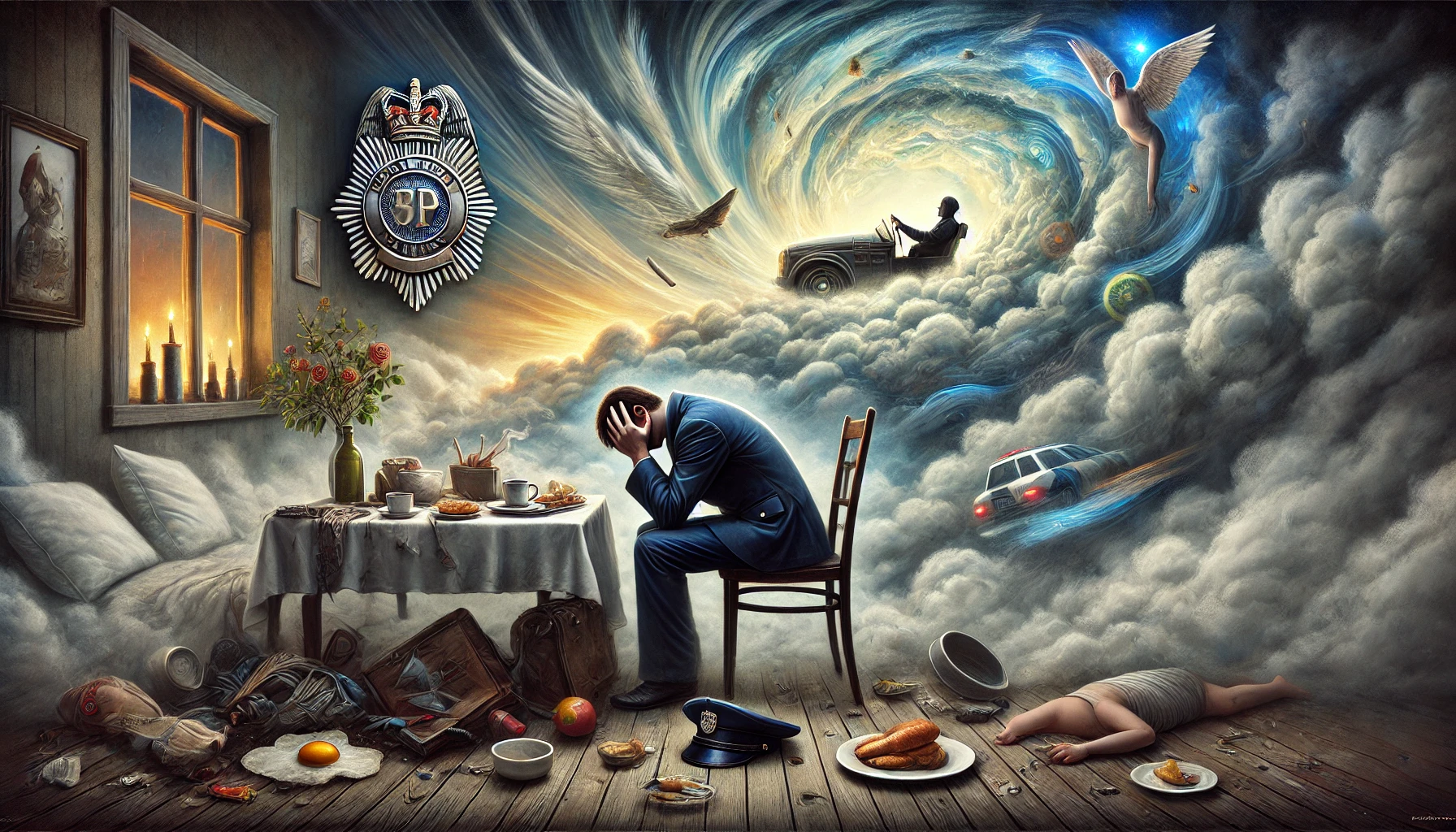
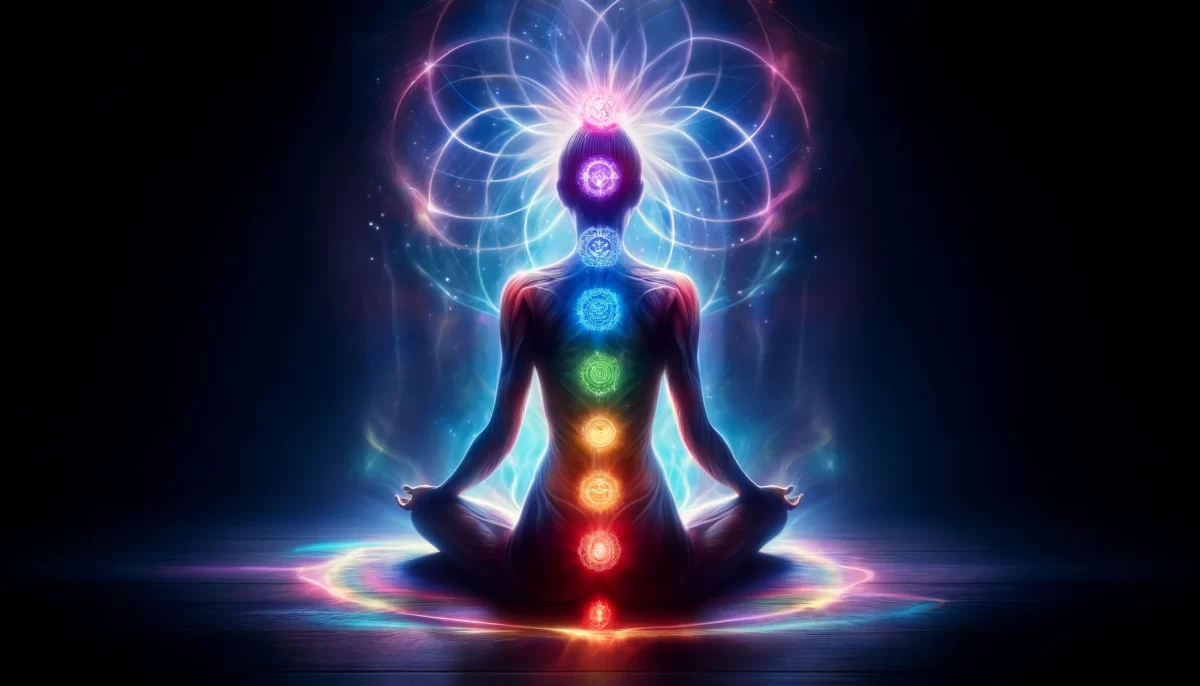
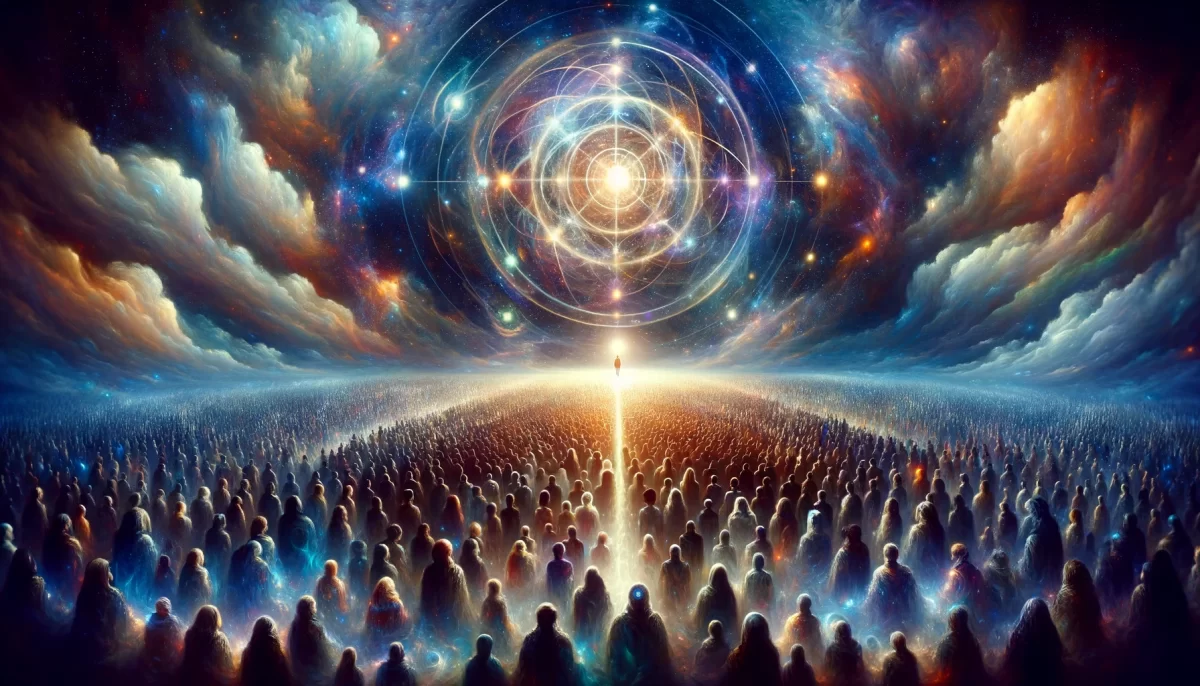
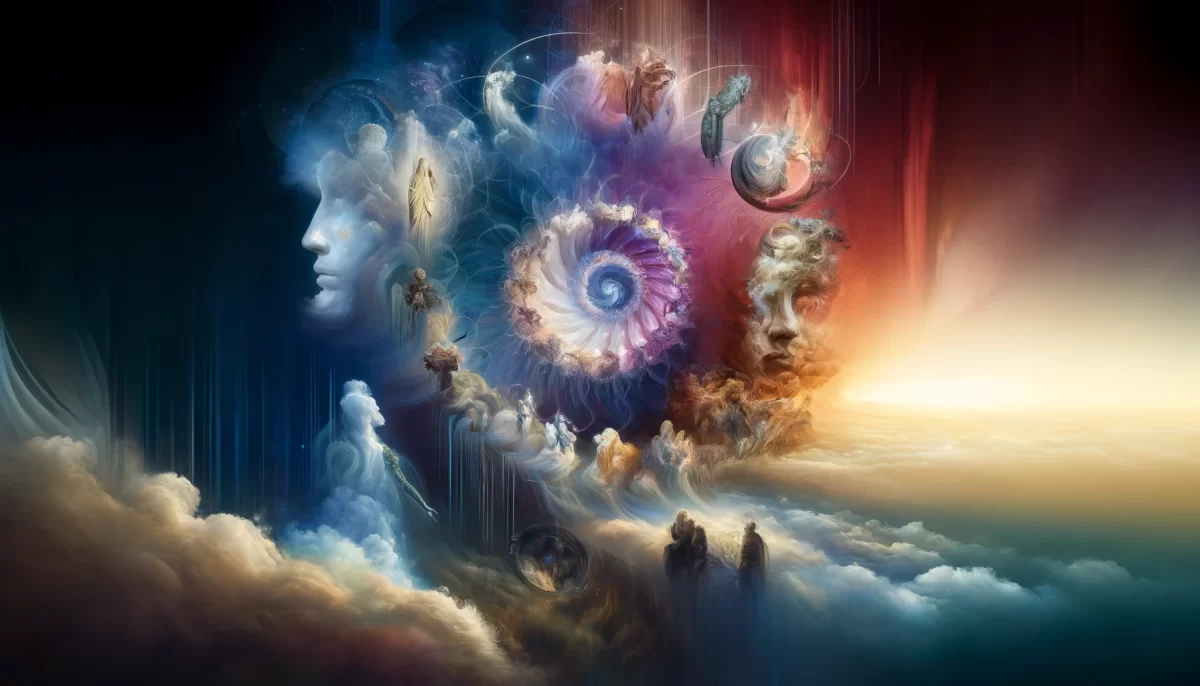

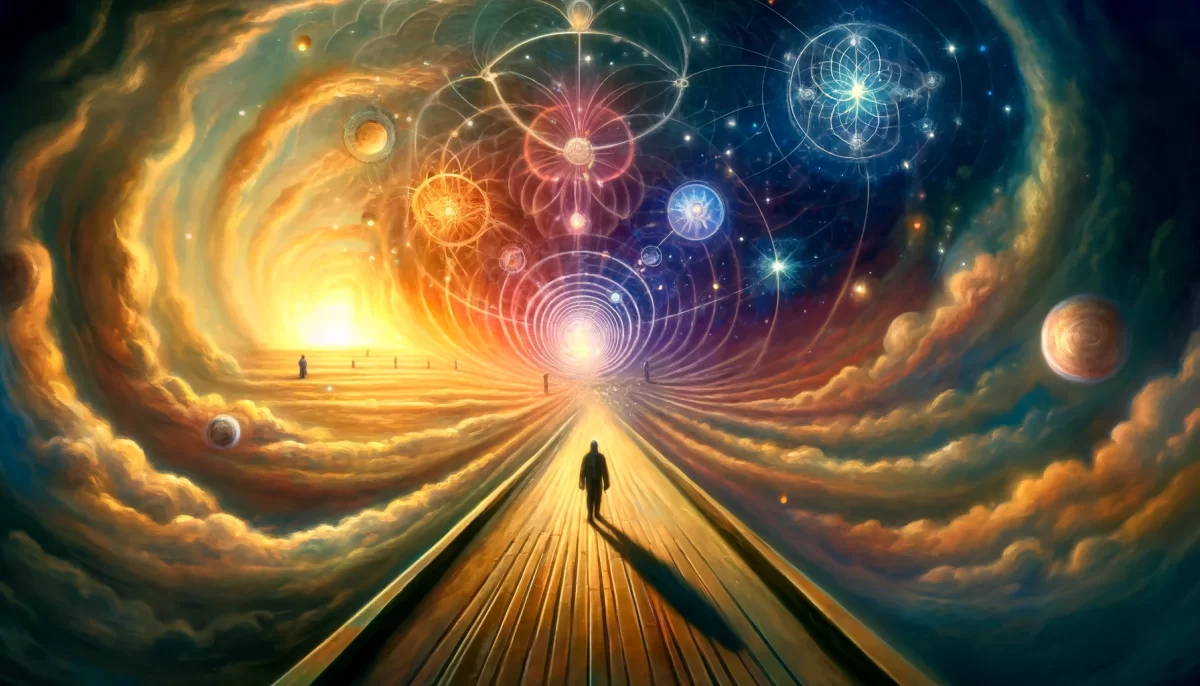
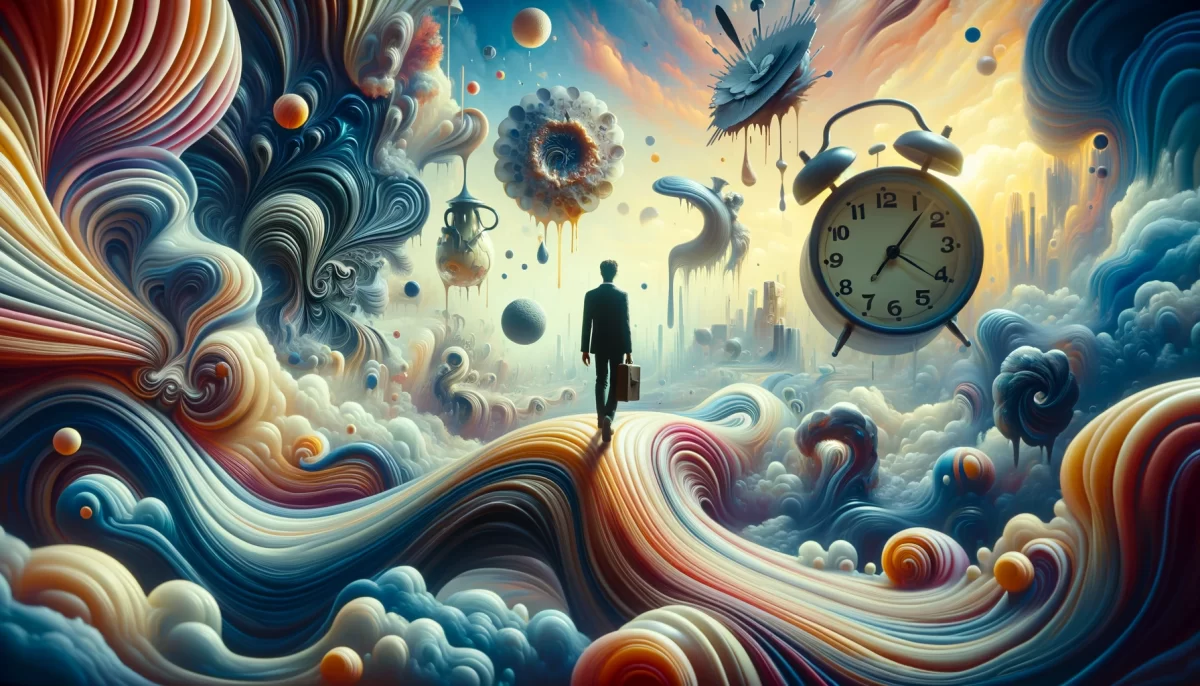
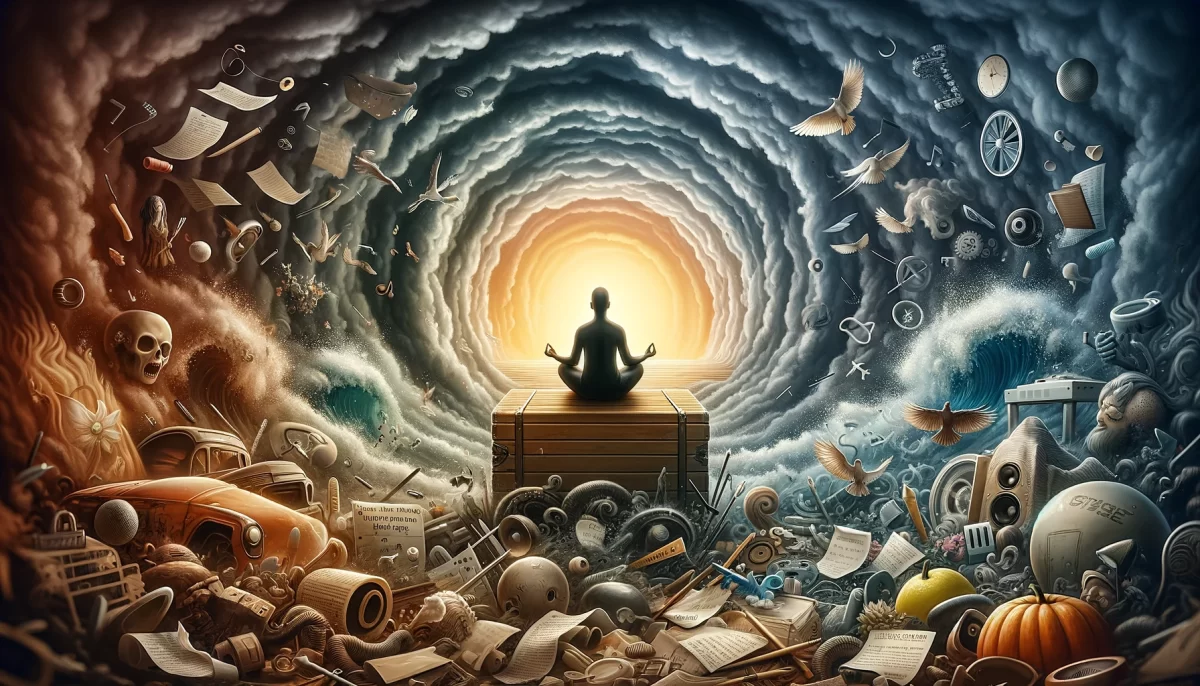


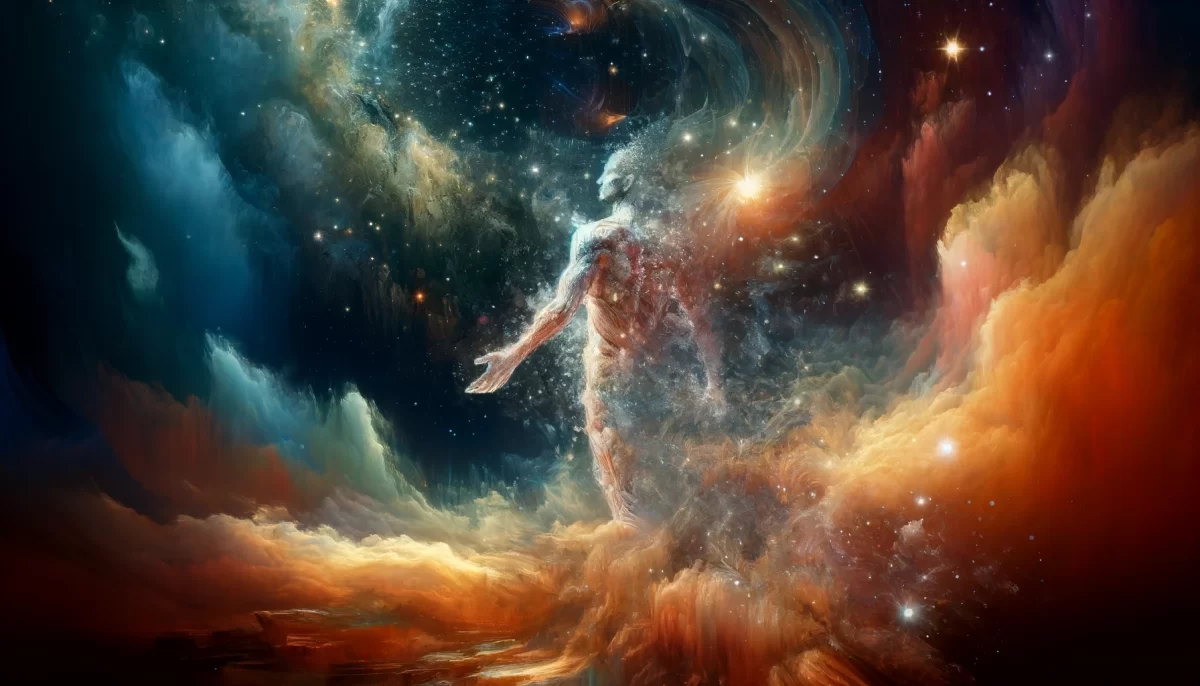
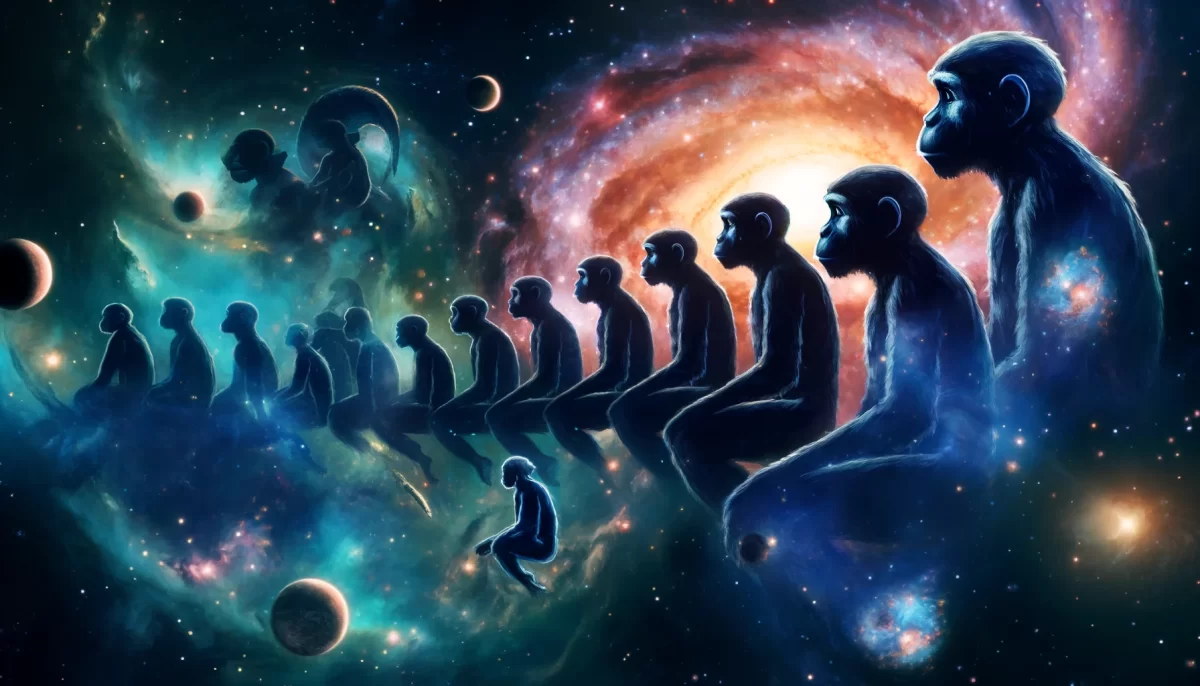


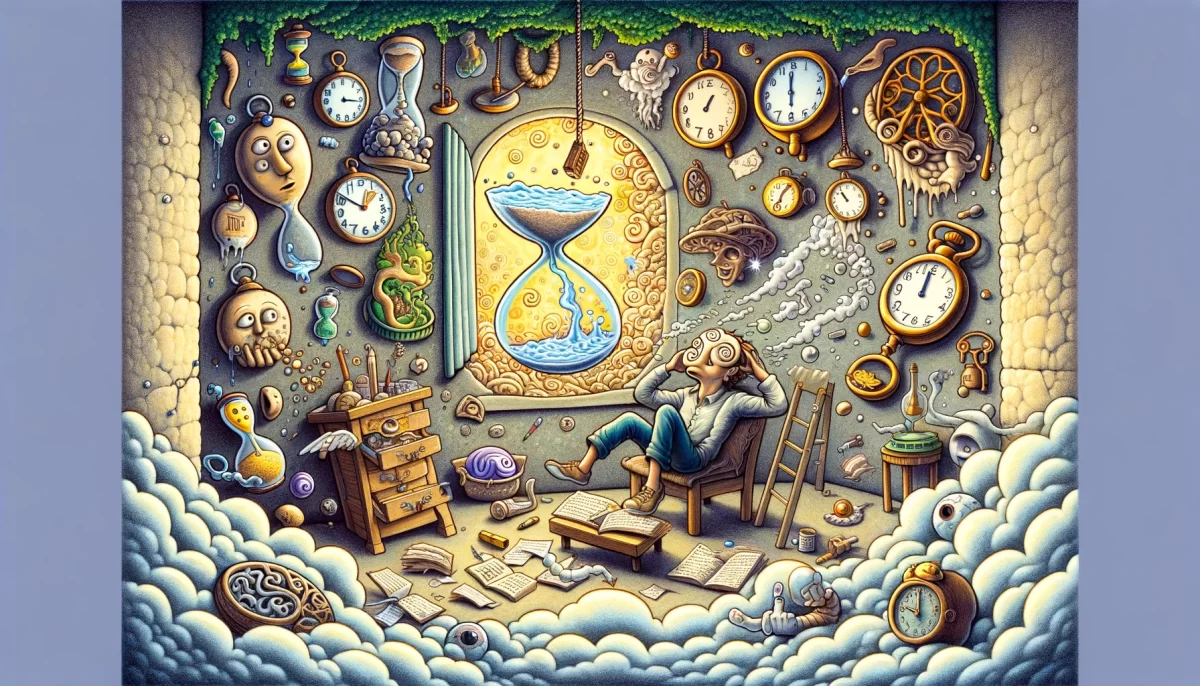

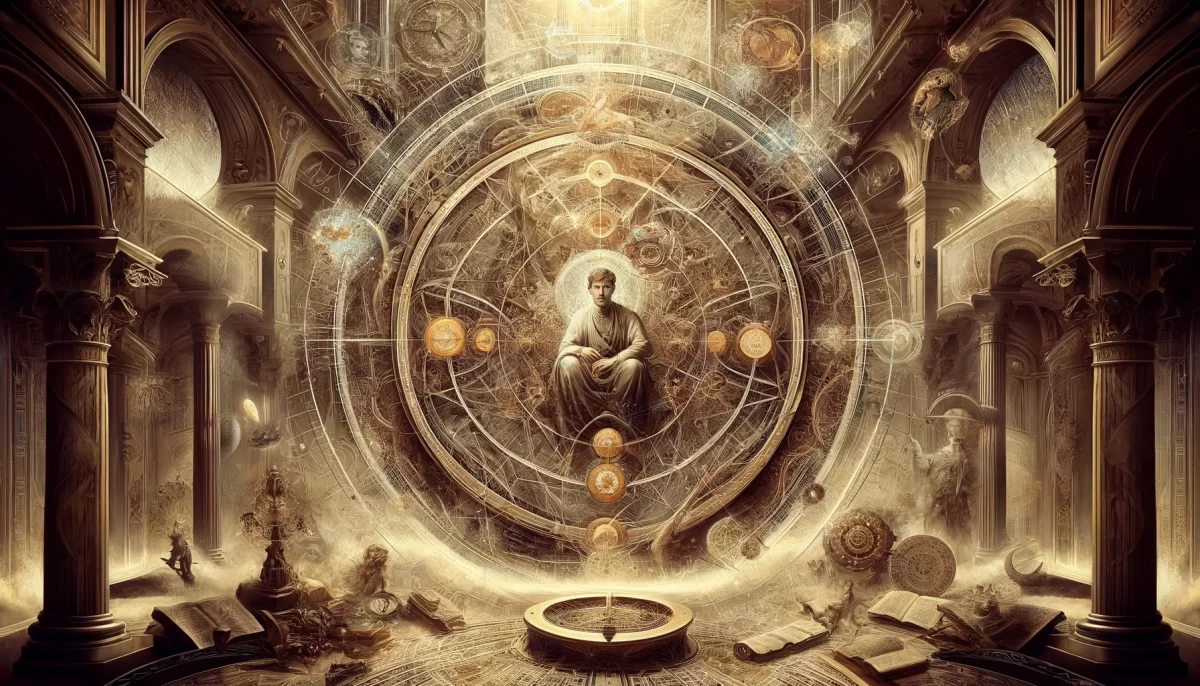
Leave a Reply